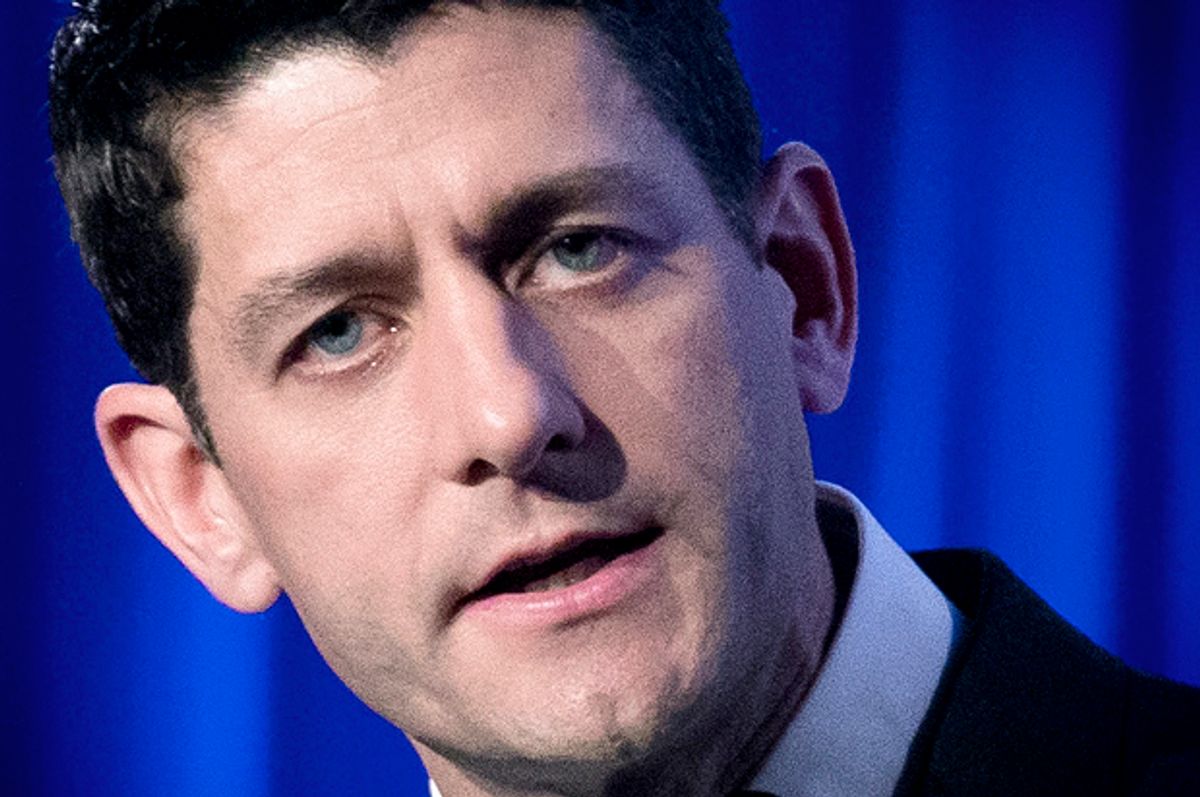Now that it has total control of both the legislative and executive branches of the government, the Republican Party is finding out that making major health care policy is hard. Gone are the days of regular Obamacare repeal votes that would never be signed by the president, empty gestures that functioned as nothing more than vanity showboating for members to brag about to constituents. Now the GOP has to actually own the consequences of passing its legislative agenda and is discovering that doing so might be kind of a bummer.
To that end, the party has recently unveiled its newest catchphrase, “repeal and delay.” This means repealing the Affordable Care Act as soon as possible after Donald Trump is sworn in but not putting it into effect for three years. The delay gives the GOP time to write a replacement plan that will allegedly keep all the popular features of Obamacare while getting rid of the mechanisms that help pay for it — the individual mandate and slight tax increases from the original law among them.
It is a sign of the GOP’s cravenness and cynicism — as if anyone needed another one — that after seven years of constant calls to repeal the ACA and more than 60 meaningless repeal votes, Republicans still have not put together a viable replacement plan. About all they have is House Speaker Paul Ryan’s “A Better Way” agenda. This calls for Obamacare’s repeal but is purposefully vague beyond that, lest he be tied down by any concrete proposals that would diminish his reputation of being a smart wonk.
But one part of Ryan’s repeal plan has long been known to anyone who listened to him and that is the phasing out of Medicare. Ryan has tied ending Medicare to Obamacare repeal on the flat-out lie that the ACA’s Medicare component fatally weakened the program’s long-term fiscal viability.
If Ryan has his way, Medicare will be replaced with vouchers that will let elderly people purchase private insurance. Any raises in the value of the vouchers from year to year won’t be pegged to inflation, which means that medical costs for older Americans will consume more and more of their limited income.
It is this aspect of Ryan’s plan that is causing friction with Republican senators, who want no part of ending Medicare. They are setting themselves up for an argument within the GOP between the Paul Ryan-Ayn Rand-fanfic wing, which would like to repeal the Great Society programs and the New Deal, and the slightly more sane and realistic wing, consisting mostly of senators like South Carolina's Lindsey Graham. The former won't want to compromise at all. The latter might seek a more sensible path largely because its members understand that destroying Medicare could cost them their Senate seats.
Hilariously, these same Republican senators are realizing that they will need to ask Democrats for help, even if they can keep Ryan's plan to voucherize Medicare out of the larger Obamacare repeal package. That's because although the Senate could probably pass an Obamacare repeal through reconciliation, a budget process that only requires a simple majority for passage, any new replacement plan will require a 60-vote supermajority to beat a Democratic filibuster.
That last point may also partly explain the “delay” portion of the repeal and delay plan. A three-year window pushes the unveiling and legislative debate of the replacement plan to be sometime past the 2018 midterms, when the map will be highly favorable to Republicans hoping to increase their Senate majority. If Trump peels Heidi Heitkamp, D-N.D., and Joe Manchin, D-W.Va., out of the Senate and into his administration, as has been rumored, the Republican governors of those states will appoint Republican replacements to serve out the last two years of their terms. If the GOP holds those two seats with replacement Republicans running as incumbents in 2018 and picks up a few more seats in the midterms, the party could find itself with a 60-vote supermajority. Then it won't need any Democrats at all.
Should the Democrats find themselves being asked to help out on the Obamacare repeal and in writing a new plan, they'd be well served to respond by giving the GOP the famous “Godfather” offer: nothing. Repealing Obamacare but allowing it to stay in place for three years of uncertainty while the details of a replacement are hammered out will play havoc with the private insurance market. It will also wreak havoc with the lives of recipients of the Medicaid expansion that was a part of Obamacare, meaning poor people will see their lives upended by a sudden end to the medical coverage that some of them had so briefly enjoyed. The whole thing will be an enormous mess, more chaotic than the implementation of Obamacare was in the first place.
The GOP has been begging for this opportunity for the entirety of the Obama administration, to the detriment of the public discourse and the lives of millions who have been helped by the ACA. Now they want to blow up what gains have been made because they have backed themselves into a rhetorical corner with the party’s base. Let them own the consequences of this irresponsibility.



Shares